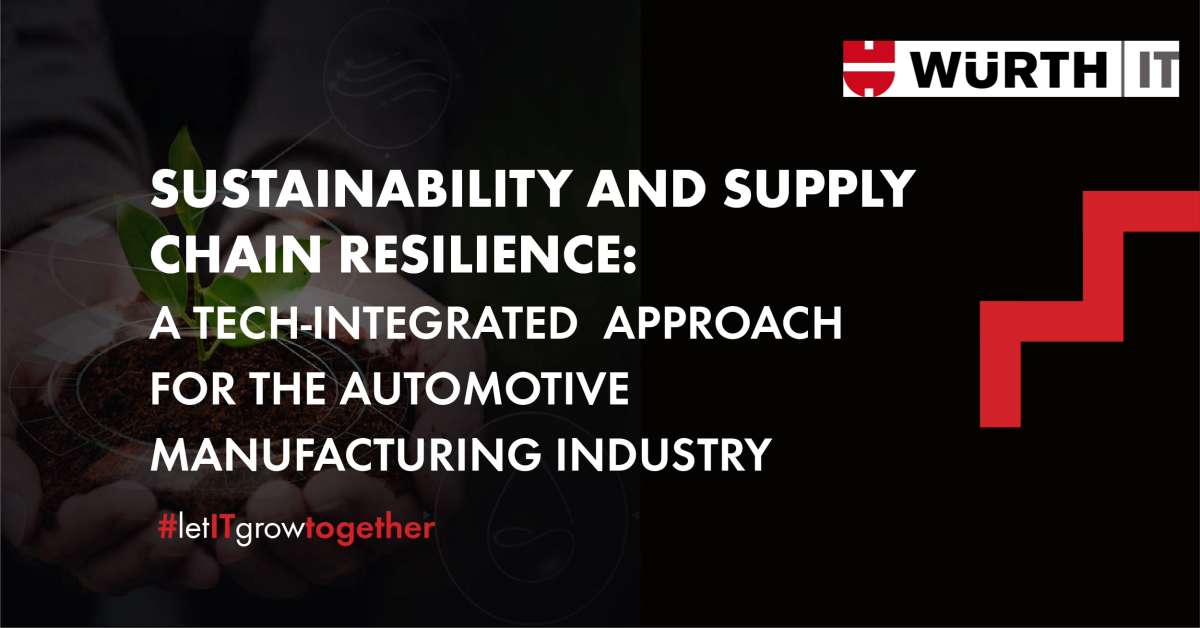Sustainability and Supply Chain Resilience: A Tech-integrated Approach for the Automotive Manufacturing Industry

Author: Harshad Kadam, Project Manager
With the automotive industry accounting for nearly 20% of global carbon emissions, automotive manufacturers are under increasing pressure to reduce their environmental footprint. As a result, 77% of companies are expected to invest more in sustainability practices by 2025, according to a PwC survey.
A study by Accenture found that companies with robust sustainability strategies are 2.5 times more likely to have resilient supply chains. The synergy between sustainability and supply chain resilience lies in their shared goals: reducing waste, improving resource efficiency, and creating long-term value. So, it's not just about reducing emissions; it's about building a resilient and responsible supply chain with ethical sourcing practices, that can withstand disruptions and ensure long-term success.
Technology is a catalyst for a synergistic approach that integrates sustainability and supply chain resilience in the automotive manufacturing industry.
Here are some aspects that the industry can consider:
- Digital Twin and Predictive Analytics: Digital twin technology allows manufacturers to create a virtual replica of their processes and products, enabling the analysis and optimization of resource usage, energy consumption, and environmental impact in real-time. From a Supply Chain Resilience perspective - predictive analytics, enabled by the digital twin, helps in forecasting disruptions, understanding demand fluctuations, and managing supply chain risks by modeling different scenarios and outcomes.
- AI and Machine Learning for Process Optimization: AI algorithms can optimize production schedules, energy usage, and waste management, minimizing inefficiencies. AI-powered systems help reduce excess production and ensure just-in-time manufacturing to conserve resources. In the same way, Machine learning models can analyze vast amounts of supply chain data to identify trends, optimize inventory levels, predict equipment failures, and mitigate risks by optimizing supplier selection and transportation routes.
- Blockchain for Transparency and Traceability: Blockchain technology allows for transparent tracking of materials and components throughout the supply chain, ensuring that they are sourced ethically and sustainably. This enables manufacturers to comply with environmental regulations and assure customers of the sustainability of their products. Blockchain enhances visibility across the supply chain, offering tamper-proof tracking of goods, from raw materials to finished products. This helps manufacturers quickly identify disruptions, trace issues, and ensure compliance with industry standards, enhancing supply chain robustness.
Conclusion:
Together, these technologies enable manufacturers to minimize their environmental impact while building adaptive, risk-resilient systems that can respond to global challenges. By adopting a synergistic approach integrating sustainability and supply chain resilience, automotive manufacturers can not only reduce their environmental footprint but also enhance their competitiveness, mitigate risks, and ensure long-term success in a rapidly evolving market.
